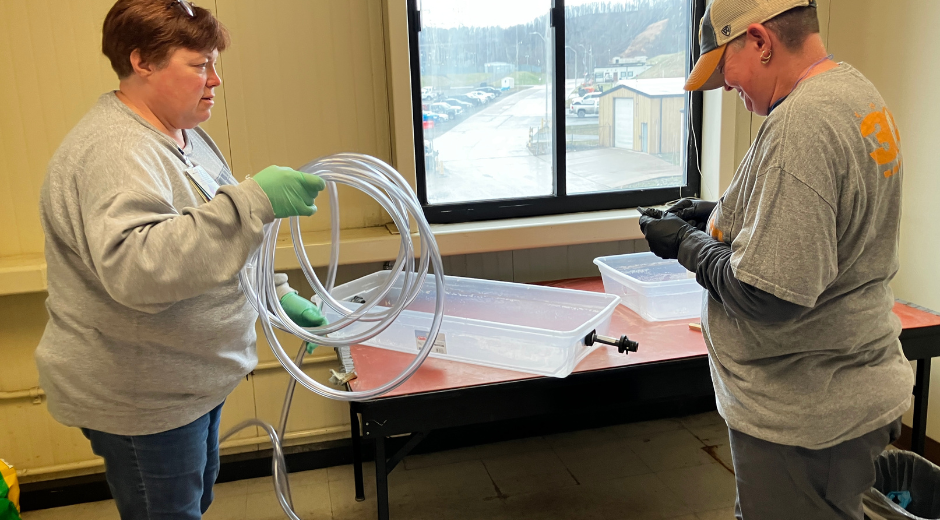FirstEnergy Green Team Volunteers Use Hydroponics to Aid Pollinator Garden
In an office inside Mon Power’s Harrison Power Station in Haywood, West Virginia, employee volunteers have developed an unlikely home for a pollinator-friendly habitat. Using grow trays, a pump and a reservoir that holds plant nutrients, members of FirstEnergy’s Generation Green Team assembled a hydroponic garden where they are growing nectar- and pollen-rich flowers that will ultimately be transferred to an outdoor pollinator garden on Harrison’s property.
FirstEnergy's Green Teams are employee-led volunteer groups focused on environmental initiatives within FirstEnergy's six-state service territory. The teams are actively involved in tree plantings and other environmental projects aimed at promoting a sustainable future. The volunteers have planted pollinator gardens across FirstEnergy’s footprint, transforming unused areas into new green spaces while creating food and habitat for insects and small animals that pollinate plants.
The hydroponic garden at Harrison will create fledgling plants that can be transferred after about eight weeks to a garden in front of the power plant. An assortment of flowers and plants were planted in the hydroponic garden, including zinnia, hollyhock, lavender, primrose and many more.
Exposed to sunlight though the office’s windows and overhead fluorescent lights, the garden was producing sprouts after less than three weeks, with Harrison employee and Green Team member Amber Moyers checking pH levels and adding nutrients regularly.
The idea for the hydroponic garden came from a Green Team member who used to grow lettuce with his previous employer using hydroponics. The team started experimenting with it two years ago and last year successfully grew pollinators indoors.
“The beauty of hydroponics is that we can grow some of these plants while it’s still cold outside, then move them over as it warms up and give them a head start in the pollinator garden,” said Julie Ford, a Senior Scientist and Generation Green Team member.
Pollinators help to sustain ecosystems and play a vital role in helping plants reproduce. In return, the plants produce fruits and vegetables, prevent soil erosion and increase carbon sequestration. Many pollinator populations are in decline due to a loss in feeding and nesting habitats, according to Pollinator Partnership, a nonprofit organization dedicated to the protection and promotion of pollinators and their ecosystems. Projects like those supported by FirstEnergy’s Green Teams can help reverse that trend.
Learn more about FirstEnergy’s environmental and corporate responsibility efforts to build a brighter and more sustainable future at fecorporateresponsibility.com.

